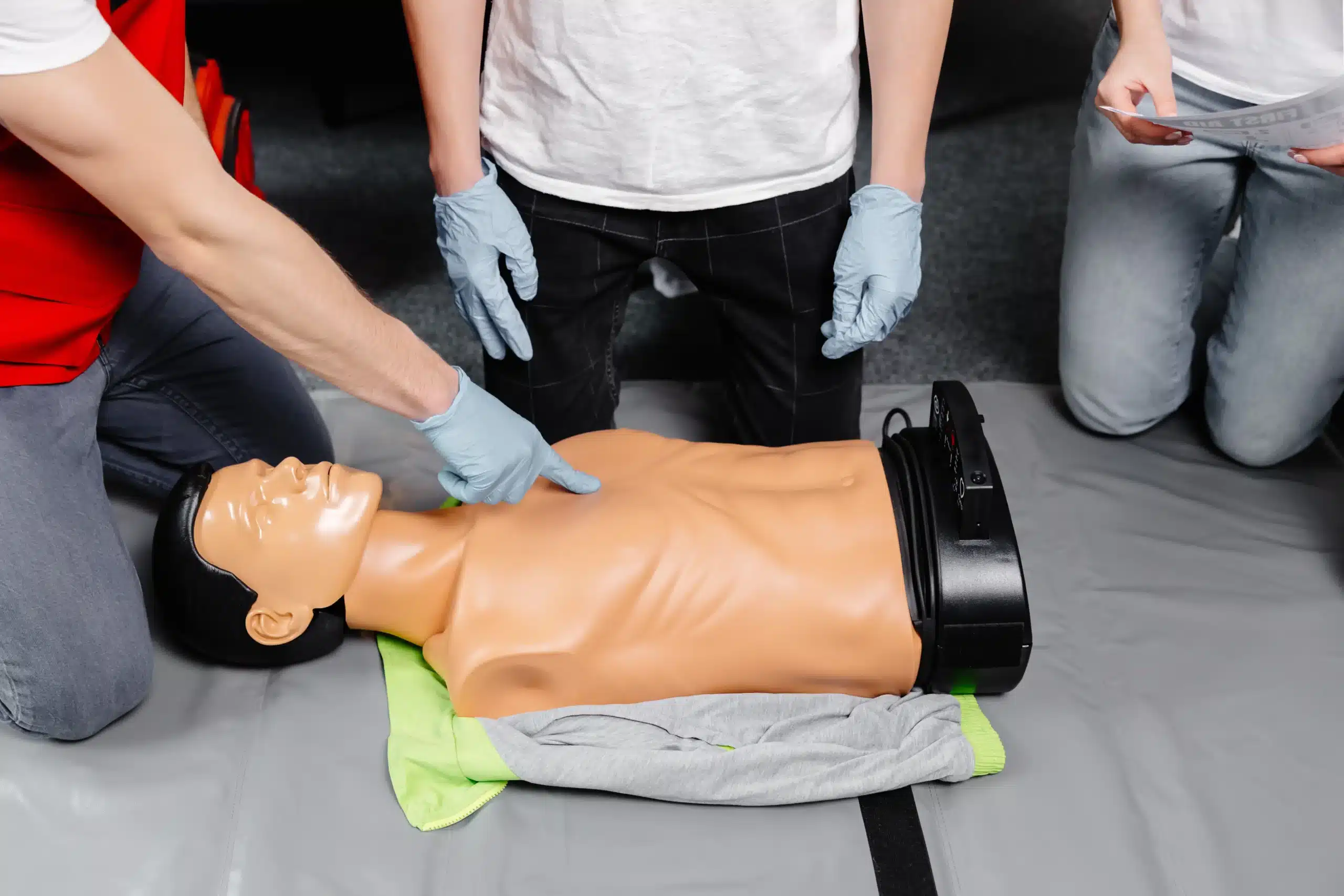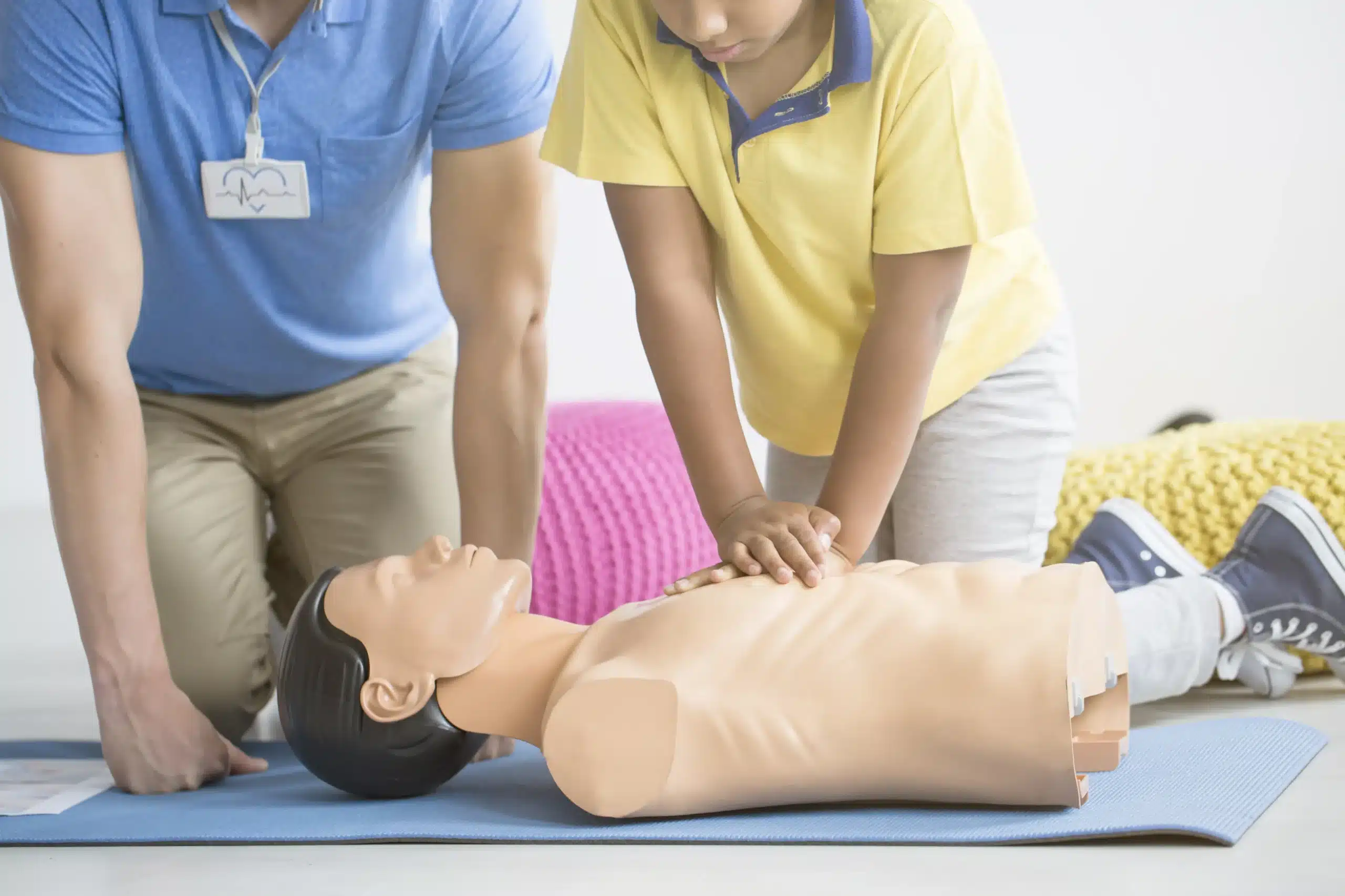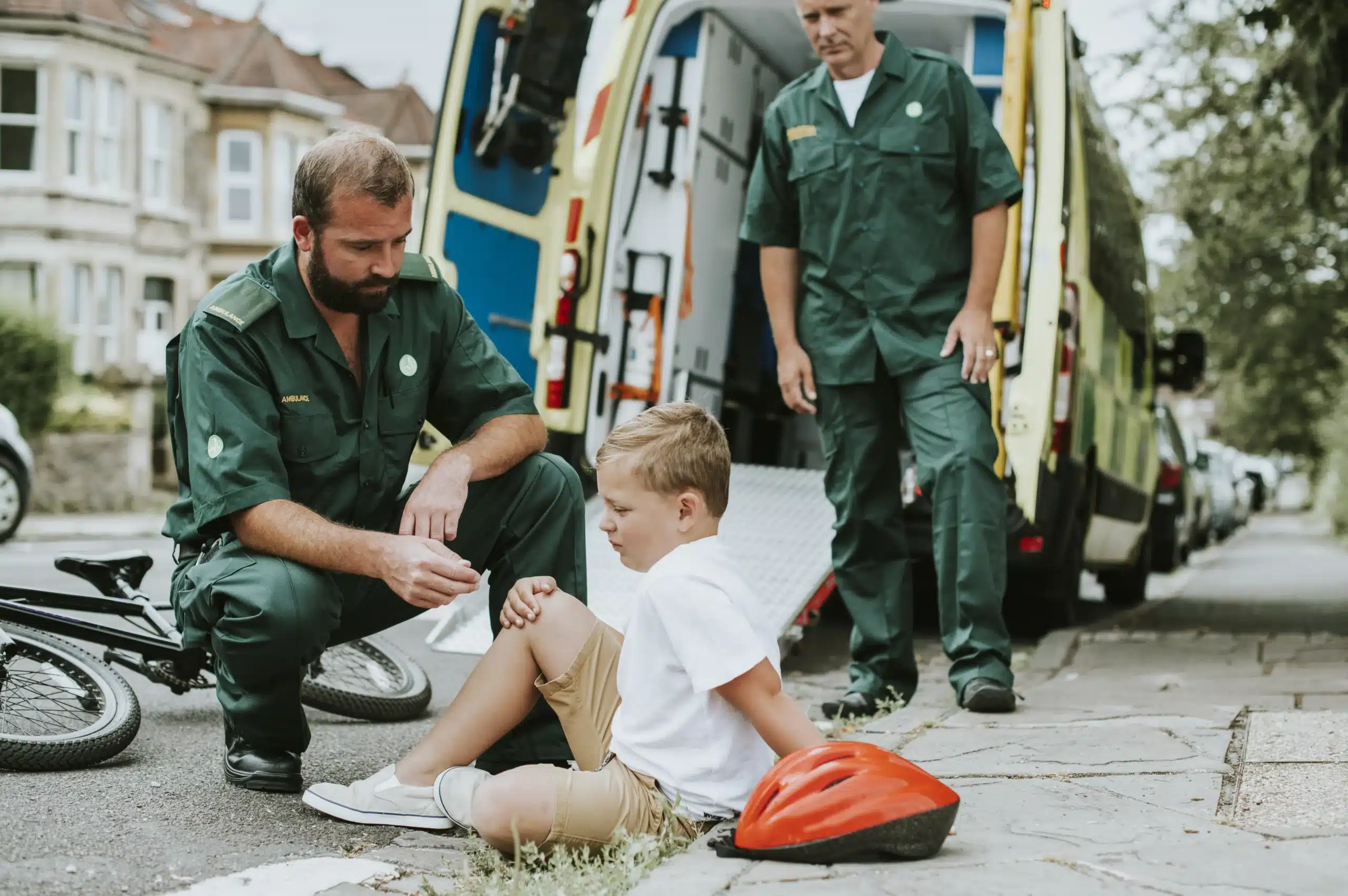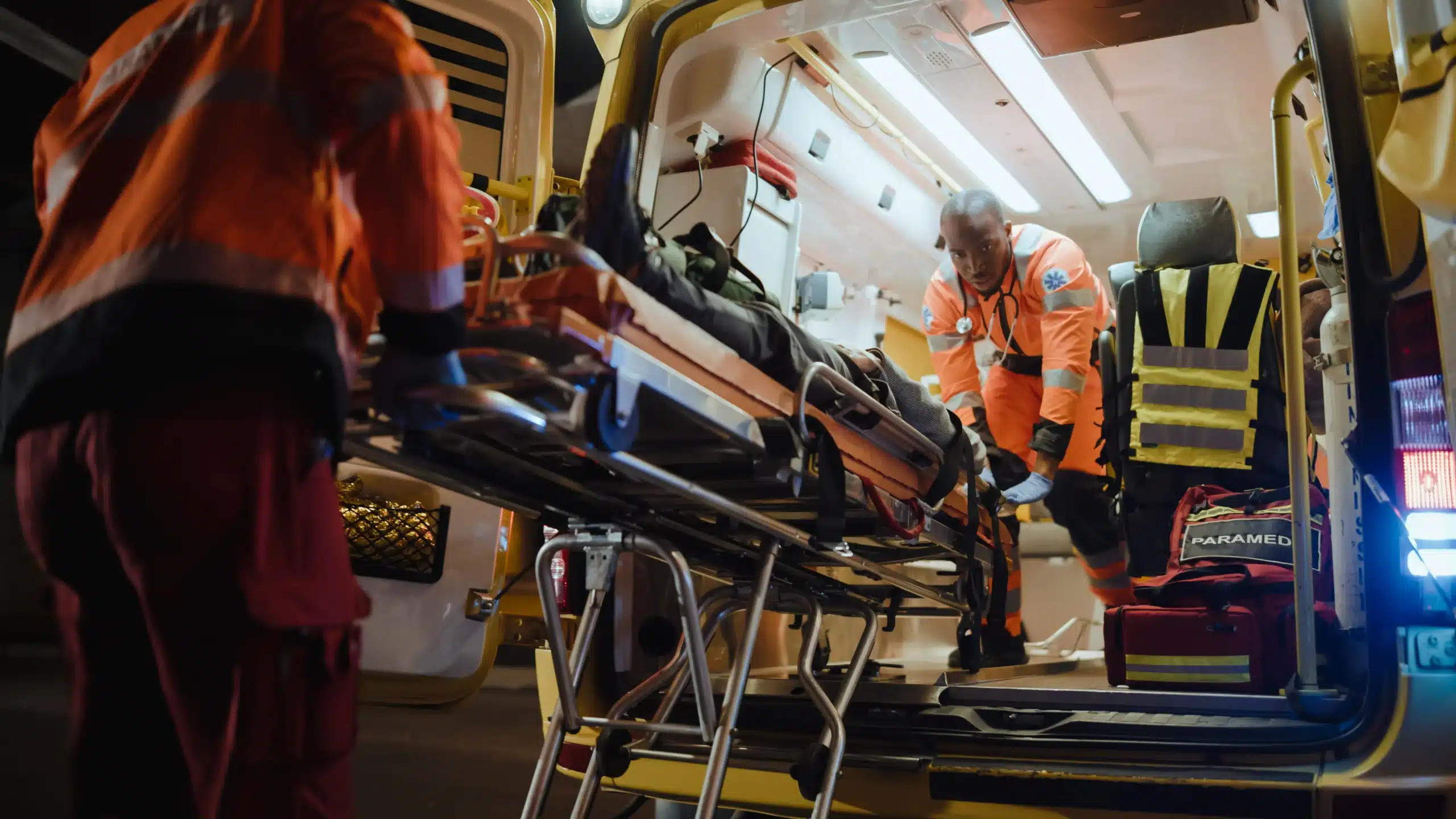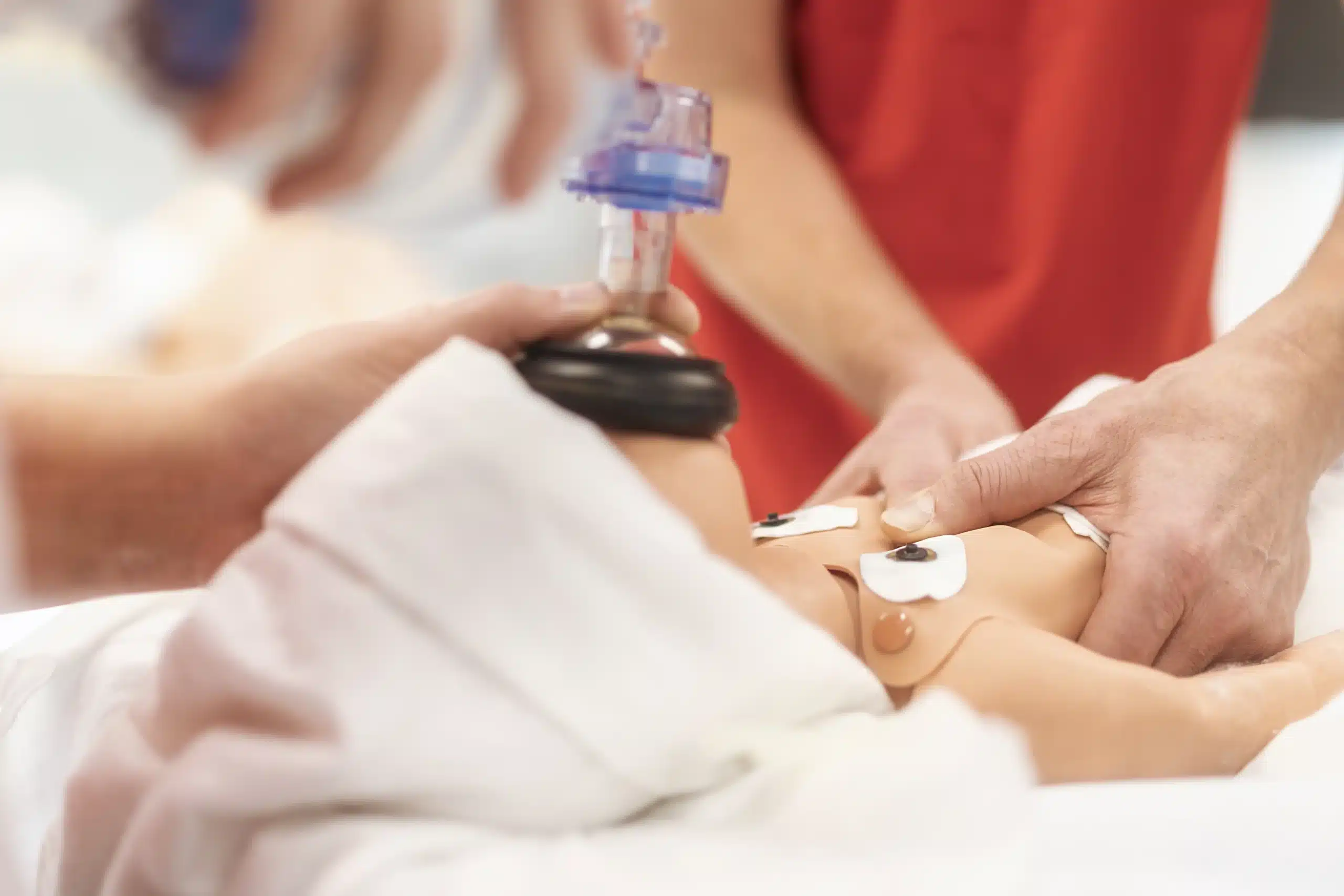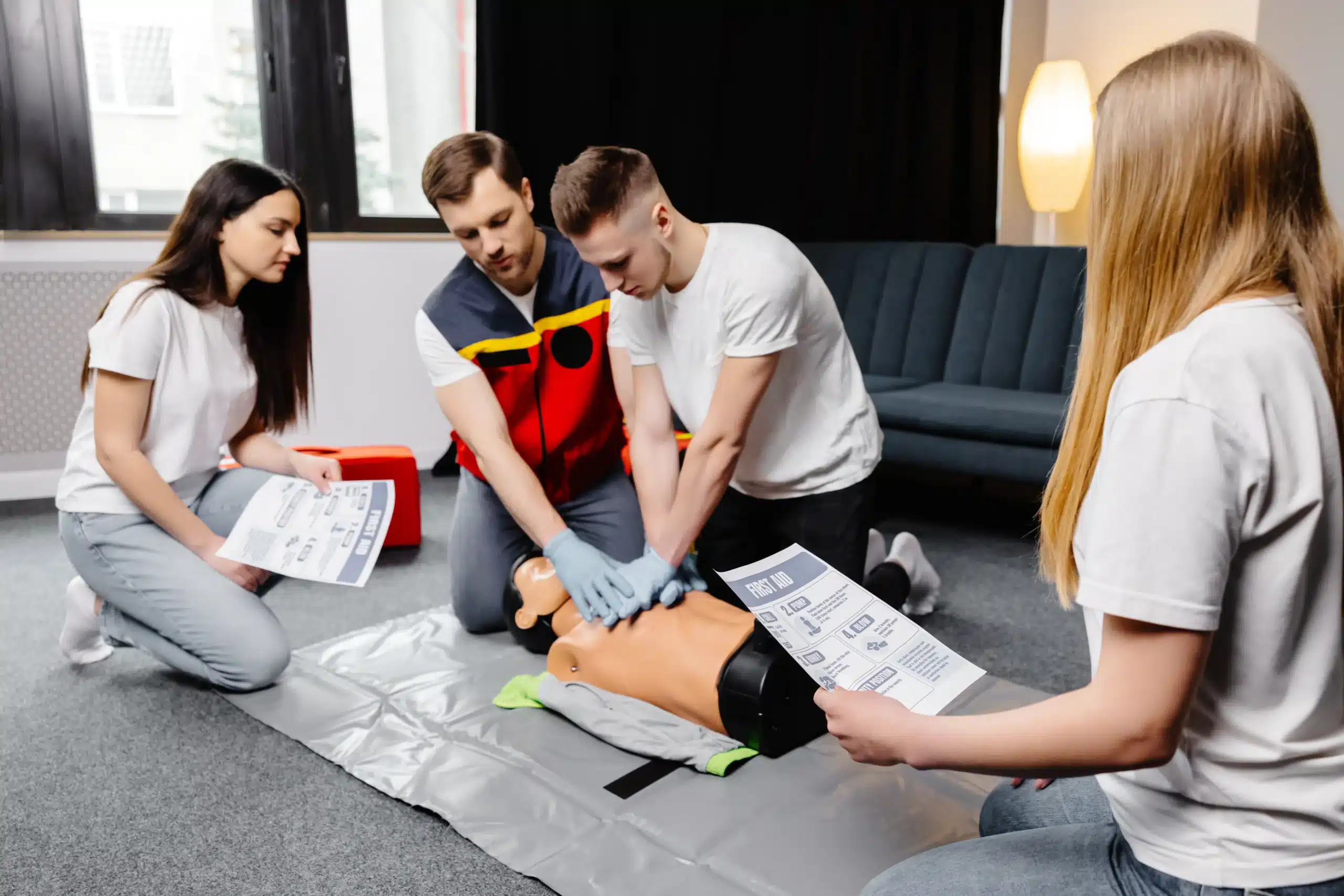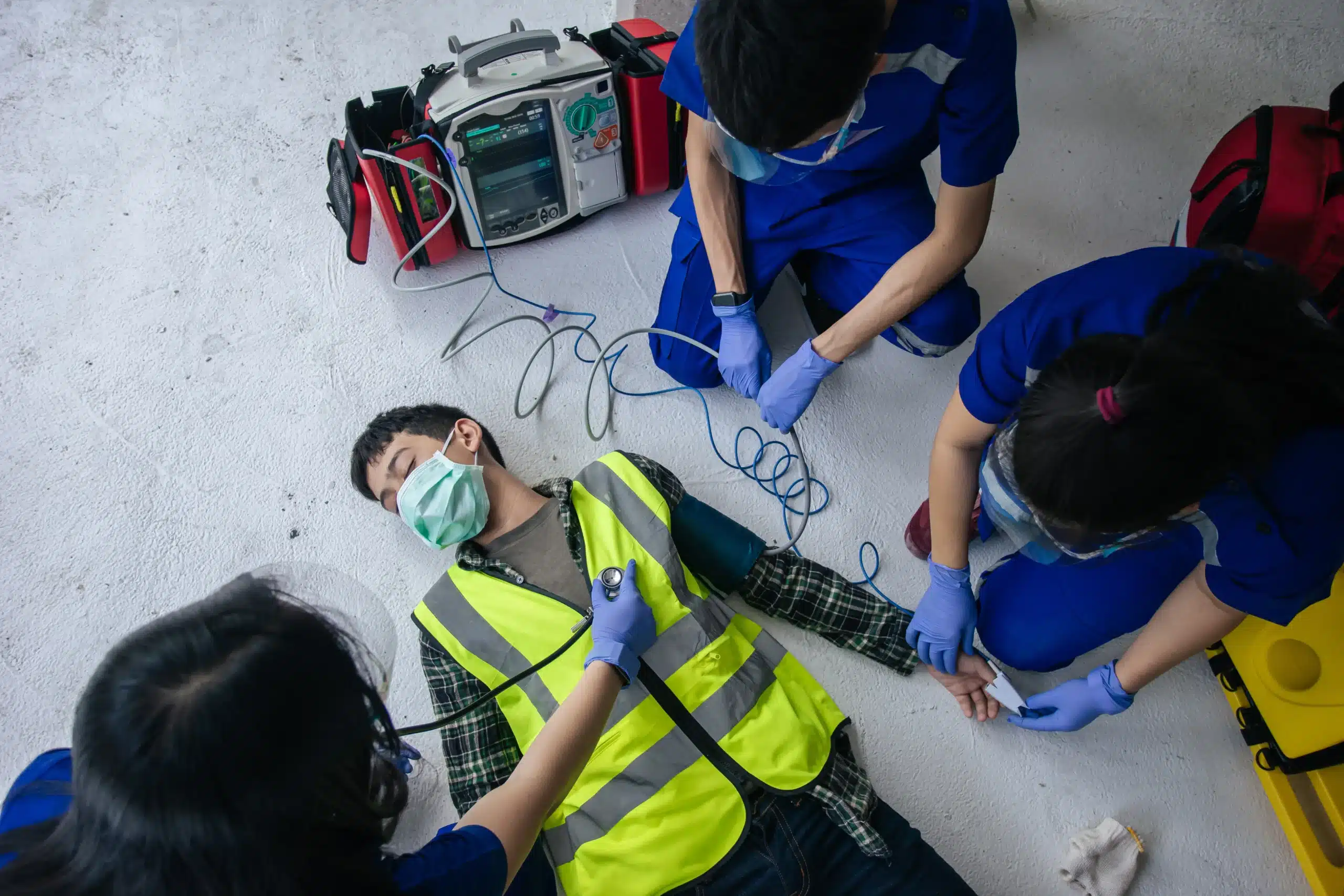Working in healthcare often means juggling long shifts, family commitments, and the constant need to stay up-to-date with the latest advancements in your field. Finding time for continuing education, like PALS certification, can feel impossible. That’s where the flexibility of online PALS classes in San Jose comes in. This article provides a practical guide to online PALS certification, covering everything from course content and costs to choosing the right provider and preparing for your skills assessment. We’ll delve into the benefits of online learning, address common challenges, and offer tips for successfully balancing your coursework with your busy life.
Key Takeaways
- PALS certification equips you to handle pediatric emergencies: This specialized training provides the knowledge and skills to confidently manage critical situations involving infants and children, leading to improved patient outcomes.
- Online PALS courses offer a flexible learning experience: The blended format of online modules and in-person skills sessions allows you to learn at your own pace and receive personalized instructor feedback.
- Stay current with PALS guidelines through renewal and continuing education: Maintain your certification and enhance your skills by completing renewal courses and pursuing ongoing educational opportunities.
What is PALS Certification & Why is it Important?
PALS (Pediatric Advanced Life Support) certification is a specialized program designed to equip healthcare providers with the knowledge and skills to respond effectively to pediatric emergencies. Think respiratory distress, allergic reactions, and cardiac arrest—situations where seconds can make all the difference. The PALS certification course covers essential skills, from recognizing a deteriorating child to providing appropriate interventions.
Why is PALS certification so important? It empowers healthcare professionals, like doctors, nurses, paramedics, and other first responders, to confidently manage critical situations involving infants and children. The American Heart Association’s PALS program provides evidence-based guidelines and practical training, ensuring providers deliver high-quality care during life-threatening emergencies. This specialized training can significantly improve outcomes for young patients facing these scary scenarios. The course typically includes online modules, hands-on skills practice, and a skills test. PALS certification is valid for two years and requires renewal to stay current.
Top Online PALS Class Providers in San Jose
Finding the right PALS certification course can feel overwhelming, so I’ve compiled a list of reputable providers offering online PALS classes in and around San Jose. This list includes a mix of local and national options to help you find the best fit for your schedule and learning style.
Morgan Hill CPR Classes
Morgan Hill CPR Classes offers a comprehensive range of American Heart Association certifications, including BLS, ACLS, PALS, CPR, and First Aid. As a woman-owned business, they emphasize a supportive learning environment and offer a low-price guarantee. Conveniently located, they serve Morgan Hill, San Jose, and Gilroy. Learn more about their PALS certification and group discounts.
American Heart Association
The American Heart Association (AHA) sets the standard for PALS training. While they don’t directly offer online courses, they authorize training centers like Morgan Hill CPR Classes to deliver their curriculum. Visit the AHA website to understand the requirements and locate authorized providers in your area.
Lifework Education
Lifework Education (formerly HeartShare Training) offers a variety of CPR, BLS, ACLS, and PALS certification courses in San Jose and other California locations. With over 25 years of experience, they have a strong track record. Explore their course offerings to see if their schedule and teaching style meet your needs.
ACLS.com
ACLS.com provides a fully online, self-paced PALS certification course. Their nationally accredited program offers 8 CEU credits accepted by various organizations, including AMA, ANCC, AANA, ACPE, and ADA-CERP. If flexibility and online convenience are priorities, review their program details.
ProMed Certifications
ProMed Certifications offers online PALS courses designed to be flexible and accessible for busy healthcare professionals. Their focus on convenience makes it easier to fit certification requirements into a demanding schedule. Learn more about their PALS certification options.
How Online PALS Courses Work
Online PALS courses blend online learning with in-person skills practice and testing. This hybrid approach lets you learn the material at your own pace before demonstrating your skills to a certified instructor. Here’s how it works:
Online Learning Modules
Online PALS courses typically begin with interactive, online learning modules. These modules cover essential PALS concepts and procedures using various multimedia elements like videos, animations, and self-assessments. This format offers flexibility, allowing you to study anytime, anywhere, and review challenging topics as needed. The modules often incorporate real-world scenarios to help you understand how to apply your knowledge in practical situations. This adaptable learning environment caters to different learning styles and ensures a comprehensive understanding of the material. For example, Morgan Hill CPR Classes offers resources to help students prepare for their course.
Interactive Simulations
Beyond the core learning modules, many online PALS courses include interactive simulations. These simulations present realistic pediatric emergencies, requiring you to make critical decisions and apply PALS protocols in a safe, virtual environment. This hands-on practice helps build confidence and reinforces your understanding of the algorithms and procedures. The simulations are based on the most recent AHA guidelines, ensuring you receive up-to-date training. You can find examples of these interactive simulations offered by various providers.
In-Person Skills Assessment
After completing the online portion, you’ll schedule an in-person skills assessment with a certified instructor. This session focuses on hands-on practice and demonstrating the skills you learned online. You’ll work with the instructor to refine your technique and receive personalized feedback. Once you successfully complete the skills check, you’ll receive your AHA PALS provider card the same day. This blended learning approach combines the convenience of online learning with the essential hands-on practice needed for real-world application. Learn more about the PALS certification process.
Online PALS Certification Costs
Getting PALS certified is an investment in your skills and career. Understanding associated costs will help you budget effectively and choose the right course. Let’s break down the typical expenses for online PALS certification.
Course Fees
Online PALS certification courses typically range from $159 to $290, depending on the provider and included features. For example, some providers, like ACLS.com, offer online PALS certification for $159, covering essential skills for pediatric emergencies. Other providers, such as those offering PALS courses in Los Angeles, might charge $230, often including online course materials and the certification card. Some courses bundle everything—online materials, skills testing, and the certification card—for a comprehensive price, like the PALS courses in San Jose at $290. Compare what’s included in each course fee to ensure you’re getting the best value.
Additional Materials
While many online PALS courses include digital materials, you might purchase a physical or eBook version of the PALS Provider Manual. This manual is essential for studying and reviewing key concepts. Some training centers sell the eBook version for around $29.99. You’ll also need a computer or tablet with reliable internet access to complete the online portion of the course, as highlighted in our guide to online CPR classes. Factor these potential additional costs into your budget.
Group Training Options
If you’re training with colleagues or friends, explore group discounts. Many providers offer reduced rates for group registrations. For instance, some centers offer a 20% discount for groups of two to five people. Morgan Hill CPR Classes provides on-site group training, bringing the course to your workplace. This can be cost-effective and convenient for organizations certifying multiple employees. Check with your chosen provider about their group training options and discounts to see if you qualify for savings.
PALS Class Prerequisites & Required Materials
Before you jump into a PALS course, it’s important to understand the prerequisites and gather the necessary materials. Being prepared will make your learning experience smoother and more effective.
PALS Provider Manual
You’ll need the current PALS Provider Manual, available as an eBook or paperback. This manual is your go-to resource throughout the course, so make sure you have it before class begins. It’s essential to show your instructor a certificate confirming you’ve completed the online video lessons and passed the self-assessment, including your score. If you don’t already have a copy, you can purchase the PALS Provider Manual eBook.
Pre-Course Self-Assessment
The American Heart Association requires all PALS students to complete online video lessons and a self-assessment before the in-person skills session. This pre-course work introduces key concepts and helps you gauge your baseline knowledge. Make sure you bring proof of completion to class—it’s a requirement. You can access the pre-course materials and self-assessment through the American Heart Association.
Healthcare Provider BLS Certification
While not always mandatory for all PALS courses, a current Healthcare Provider BLS certification is highly recommended, especially for healthcare professionals working with children. PALS builds upon the foundational skills taught in BLS, so a solid understanding of basic life support is crucial. If you’re a doctor, nurse, paramedic, or other healthcare provider regularly interacting with children, consider obtaining your BLS certification before taking PALS. It will give you a strong base and enhance your overall emergency response skills.
Learn PALS Online Effectively
Online PALS courses offer a convenient way to gain this essential certification. Successfully completing an online program involves understanding the benefits of self-paced learning, addressing common challenges, and finding a balance between your coursework and other commitments.
Self-Paced Learning Benefits
Juggling work, family, and continuing education can be tricky. Online PALS courses offer the flexibility to learn at your own speed and on your own schedule. This means you can review material as needed and fit your studies into your life, not the other way around. Many online courses, like those using the American Heart Association RQI program, incorporate real-world scenarios and adaptive learning techniques to make the material engaging and relevant. This approach helps you understand the practical application of the concepts.
Overcome Common Challenges
While online learning offers flexibility, it also presents unique challenges. It’s easy to feel isolated when you’re learning remotely. Actively combat this by connecting with instructors and fellow students when possible. Ask questions, participate in discussions, and build a support network. Technical issues can also disrupt your studies. Ensure you have reliable internet access and a device that meets the course requirements. Addressing these potential problems beforehand will save you time and frustration.
Balance Work and Study
One of the biggest hurdles with online learning is procrastination. Because you’re setting your own pace, it’s tempting to put things off. Create a realistic study schedule that fits your existing commitments. Treat your study time like any other important appointment and stick to it. Establishing a dedicated, organized study space at home can also significantly improve focus and productivity. This helps create a boundary between your study time and personal time, making it easier to concentrate on your coursework.
Your In-Person PALS Skills Session
After completing the online portion of your PALS course, you’ll move on to the crucial in-person skills session. This hands-on component allows you to put your knowledge into practice and demonstrate proficiency in the techniques you’ve learned. It’s the bridge between theory and application, ensuring you’re prepared to respond effectively in real-life pediatric emergencies.
Hands-On Practice
The skills session emphasizes hands-on practice, giving you ample opportunity to perform the necessary skills for pediatric advanced life support. You’ll work with realistic training equipment and scenarios, simulating the conditions you might encounter in an emergency. This practical experience builds your confidence and muscle memory, so you can react swiftly and efficiently under pressure. Think of it as a dress rehearsal, allowing you to refine your technique in a safe and controlled environment. For more information on what to expect, visit our course preparation page.
Instructor Feedback
Throughout the skills session, certified instructors provide immediate, personalized feedback. They observe your technique, offer guidance, and answer any questions you may have. This direct interaction ensures you understand the correct procedures and can apply them effectively. The instructors are there to support you, helping you identify areas for improvement and solidify your understanding of PALS protocols. Our instructors are experts in their field and dedicated to helping you succeed. Learn more about our pricing and how we make high-quality training accessible.
Final Assessment
The in-person skills session culminates in a final assessment where you demonstrate your mastery of PALS techniques. This evaluation is essential for obtaining your PALS certification. It’s your chance to showcase your skills and prove you’re ready to provide high-quality pediatric advanced life support. You’ll be assessed on your ability to perform the required skills accurately and efficiently, ensuring you meet the standards set forth by the American Heart Association. We offer a variety of courses, including BLS and ACLS, to meet your specific training needs. We also offer discounts for groups training together.
Are Online PALS Classes Effective?
Choosing the right PALS course format is a big decision. You want training that effectively prepares you for real-world pediatric emergencies. So, are online PALS classes a good option? Let’s explore what makes them effective.
Student Reviews and Testimonials
Online PALS courses offer valuable features like real-world simulations, which can make learning more efficient. Many students appreciate how online learning adapts to different learning styles and creates a more inclusive learning environment. Some online PALS programs incorporate peer-peer applied learning sessions, where participants collaborate on real-world scenarios. This practical application encourages active participation and hands-on learning, even in a virtual setting. These interactive elements help bridge the gap between theory and practice. For busy professionals juggling work and family, the flexibility of online learning can be a game-changer.
Certification Success Rates
Online PALS courses are designed to align with the latest PALS guidelines, ensuring students receive up-to-date training. The flexibility of online access allows busy professionals to study anytime, anywhere, which can contribute to higher completion rates. While individual success depends on several factors, online PALS courses provide the tools and resources necessary to prepare for the certification exam. Ultimately, the effectiveness of any PALS course, online or in-person, depends on the student’s commitment to learning the material and practicing the skills.
Maintain Your PALS Certification
Keeping your Pediatric Advanced Life Support (PALS) skills sharp is crucial for any healthcare provider. It’s not a one-and-done deal. Staying up-to-date on the latest guidelines ensures you’re always prepared to provide the best possible care for young patients.
Renewal Process
Your PALS certification is valid for two years. To renew, you’ll need to complete a PALS Renewal course before it expires. The American Heart Association’s PALS Renewal class is a streamlined, six-hour course designed to refresh your knowledge and skills. Many providers, like Morgan Hill CPR Classes, offer this PALS Renewal course in San Jose, making it convenient to fit into your busy schedule. You’ll receive your new PALS certification the same day you complete the class.
Continuing Education Opportunities
Even after renewing your certification, continuing education is key to staying at the top of your game in pediatric emergency care. PALS courses cover a wide range of critical skills, from managing respiratory distress and allergic reactions to handling cardiac arrest. Regularly engaging with these courses not only helps you maintain your certification but also deepens your understanding and improves your practical skills. Many providers offer online components, including interactive simulations and real-world scenarios, which can be a great way to learn and reinforce your knowledge. These online resources offer a flexible way to fit continuing education into your schedule. Staying informed about the latest advancements in pediatric care allows you to confidently handle any emergency.
Choose the Right Online PALS Class in San Jose
Finding the right online PALS class boils down to three key considerations: comparing providers, considering your learning style, and verifying the provider’s legitimacy. Let’s break down each step to help you make the best choice for your PALS certification in San Jose.
Compare Provider Features
Not all online PALS courses are created equal. Examine what each provider offers. Do they adhere to the latest American Heart Association guidelines? What kind of student support do they provide? For example, Morgan Hill CPR Classes offers a comprehensive range of AHA certifications, including BLS, ACLS, and PALS, emphasizing a supportive learning environment and a low-price guarantee. You might also look into providers like Safety Training Seminars, which offers various AHA courses in several locations around San Jose. Compare their features to determine which best suits your needs.
Consider Your Learning Style
Think about your ideal learning environment. Do you prefer self-paced learning or a more structured approach? Online PALS courses offer flexibility, often incorporating real-world examples and interactive elements to accommodate different learning styles. Some providers, like Morgan Hill CPR Classes, also utilize the American Heart Association’s RQI program, a modern approach to skills verification and certification for healthcare professionals. This blended learning style combines online learning with in-person skills practice.
Make an Informed Decision
Ensure you select a reputable provider. Your PALS certification must come from an accredited source that adheres to national standards. Prioritize providers offering AHA-certified courses, such as those from Morgan Hill CPR Classes. Consider practical aspects like access to technical support. Reliable internet access and appropriate devices are crucial for a positive online learning experience. Choosing a provider that recognizes and addresses these technical considerations can significantly impact your learning journey.
Related Articles
- PALS Certification in San Jose: A Complete Guide
- PALS HeartCode in Gilroy: Training & Requirements – Morgan Hill CPR Classes
- PALS Classes in Morgan Hill, CA – Morgan Hill CPR Classes
Frequently Asked Questions
What’s the difference between PALS and BLS?
BLS (Basic Life Support) teaches fundamental life-saving skills applicable to anyone, while PALS (Pediatric Advanced Life Support) builds upon those basics with specialized techniques for infants and children. PALS focuses on the specific physiological differences between children and adults, providing healthcare professionals with the advanced knowledge and skills to manage pediatric emergencies effectively.
How long does it take to get PALS certified?
The time commitment varies depending on the course format and provider. Online PALS courses offer flexibility, allowing you to complete the online modules at your own pace. The in-person skills session and testing typically take a few hours. Some providers offer blended learning options, combining online modules with shorter in-person sessions.
Is online PALS certification accepted everywhere?
Yes, online PALS certification from an accredited provider, like those offering American Heart Association courses, is widely accepted. Make sure your chosen provider adheres to the latest AHA guidelines and offers nationally accredited certification. This ensures your certification meets the requirements of most healthcare facilities and organizations.
How much does PALS certification cost?
The cost of PALS certification varies depending on the provider and course format. Online courses typically range from $150 to $300, often including online materials, skills testing, and the certification card. Some providers offer group discounts, which can lower the cost per person.
How often do I need to renew my PALS certification?
PALS certification is valid for two years. You’ll need to complete a PALS Renewal course to maintain your certification and stay current with the latest guidelines. Many providers offer renewal courses that are shorter and more focused than the initial certification course.
